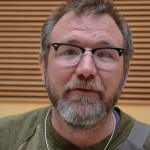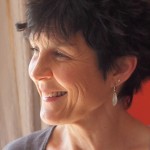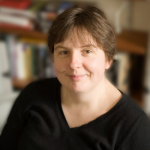Announced keynotes and invited talks
The following keynotes and invited talks have been confirmed for OER16
- Jim Groom, Reclaim Hosting
- Catherine Cronin, National University of Ireland, Galway
- Emma Smith, University of Oxford
- John Scally, National Library for Scotland
- Melissa Highton, University of Edinburgh
Jim Groom
Biography
 Jim Groom is the co-founder of Reclaim Hosting, an independent web hosting company focused on the higher education community. Previously he was the Executive Director of the Division of Teaching and Learning Technologies and adjunct professor at the University of Mary Washington in Fredericksburg, Virginia.
Jim Groom is the co-founder of Reclaim Hosting, an independent web hosting company focused on the higher education community. Previously he was the Executive Director of the Division of Teaching and Learning Technologies and adjunct professor at the University of Mary Washington in Fredericksburg, Virginia.
He has been working for over twenty years in higher education with a consistent focus on the development of teaching and learning in higher education. In addition to extensive experience teaching at the college level, for the past ten years her has worked primarily in the field of instructional technology (see work experience).
His experience as an instructor coupled with extensive collaborations with faculty and students with a specific focus on curricula, pedagogical and technologically enhanced projects has informed much of the innovative work he’s been a part of in the field of instructional technology over the last decade.
He has been part of a number of exciting projects at the University of Mary Washington. In 2006 he started the web-based educational publishing platform ELS Blogs for the English Linguistics and Speech department at UMW. This pilot project led to the development of UMW Blogs in 2007 which has since become an enterprise level academic publishing platform. In 2008 the madness that was EDUPUNK was attributed to a series of posts he wrote on his personal blog.
In 2010 he re-imagined the Computer Science 106 course on Digital Storytelling at UMW as an open, online community referred to as ds106—an experiment in teaching and learning on the web that is still going strong and has been celebrated internationally as a compelling community-based approach to online learning. Additionally, he also helped spearhead an initiative at the University of Mary Washington called A Domain of One’s Own that, starting in Fall 2013, provided all incoming Freshman their own domain and web hosting account.
Finally, he writes regularly about his work as an instructional technologist–in addition to several other interests such as film, literature, and media of all kinds–on his home away from home: bavatuesdays.com.
Abstract
Can we imagine tech Infrastructure as an Open Educational Resource? Or, Clouds, Containers, and APIs, Oh My!
We often frame OERs, open, shareable educational resources, in relationship to content, but rarely in relationship to shared technical infrastructure. How would our conception of OERs expand if we could easily and efficiently create and share applications across institutions? What if we focused more on small, focused, re-usable software as reflective of specific cultures rather than large, institutional repositories as monolithic solutions? What if we worked towards a collaborative infrastructure for open educational resources that was always framed and scaled at the level of the individual, not unlike the web. With the shift in web infrastructure to the cloud, and the advent of APIs and containers, we may be entering a moment wherein the open culture of networks, rather than pre-defined educational content, is representative of the future of OER culture. How might the agile contours of a burgeoning network of distributed and collaborative edtech be the key to sustainable future for open educational resources? Well, come to this talk and find out….maybe.
[Image credit: CC-BY-SA-NC mikhailgershovich https://flic.kr/p/9JucRU]
Catherine Cronin
Biography
 Catherine Cronin is an educator and researcher at the National University of Ireland, Galway. She has worked as an open educator for many years, notably in #ct231 and iCollab (2011-2014), a globally networked community of students and lecturers [sic] exploring mobile and social media, digital literacies/identities, and participatory curriculum development.
Catherine Cronin is an educator and researcher at the National University of Ireland, Galway. She has worked as an open educator for many years, notably in #ct231 and iCollab (2011-2014), a globally networked community of students and lecturers [sic] exploring mobile and social media, digital literacies/identities, and participatory curriculum development.
Catherine’s work focuses on open education, formal/informal learning, digital and network literacies, and digital identity practices; she also has done research in the area of gender and technology. Catherine is currently working towards a Ph.D. exploring the use of open educational practices in higher education. She writes and shares her work openly, most recently collaborating with Vivien Rolfe on the GoOpen wiki. Catherine has been a keynote speaker at several recent conferences including ALT-C 2014, Irish Learning Technology Association (ILTA) EdTech, ICT in Education, and eAssessment Scotland. You can find out about what Catherine is up to on Twitter @catherinecronin and on her blog catherinecronin.wordpress.com (and occasionally on Medium).
Catherine is a New Yorker living in Galway, has postgraduate degrees in engineering and women’s studies, and has taught in the community and higher education in both Ireland and Scotland. She lived and worked in central Scotland for several years and looks forward, as always, to being back in Edinburgh for OER16.
Abstract
If ‘open’ is the answer, what is the question?
Whether we consider ourselves to be open education practitioners or researchers, advocates or critics, wonderers or agnostics, our motivating questions regarding openness are likely to be different, often very different. For example:
- How can we minimise the cost of textbooks?
- How can we help students to build and to own their content and portfolios?
- How might we support and empower learners in making informed choices about their digital identities and digital engagement?
- How might we build knowledge as a collective endeavour?
- How can we broaden access to education, particularly in ways that do not reinforce existing inequalities (Czerniewicz, 2015)?
Openness may help us in addressing such questions. Engaging with the complexity and contextuality of openness is important, however, if we wish to be keepers not only of openness, but also of hope, equality and justice (McMillan Cottom, 2015). With the help of others, Catherine will explore some of these broader questions and critical approaches to openness, as well as sharing results from her research exploring how educators conceptualize openness and open educational practices (Beetham, et al, 2012).
References
Beetham, H., Falconer, I., McGill, L., & Littlejohn, A. (2012). Open practices: Briefing paper. JISC.
Czerniewicz, L. (2015). Confronting inequitable power dynamics of global knowledge production and exchange. Water Wheel 14(5), pp. 26-28.
McMillan Cottom, T. (2015). The access paradox: Can education expansion balance access with equity. Keynote address at International Council for Open and Distance Education, University of South Africa. October 2015.
Emma Smith
Biography
 At University of Oxford Dr Emma Smith’s research combines a range of approaches to Shakespeare and early modern drama. She is a fellow of Hertford College and a Professor of Shakespeare studies. She was also one of the first academic colleagues to champion the use and creation of OER at University of Oxford through her involvement in the Jisc funded Open Spires and Great Writers Inspire projects. Her OER licensed lectures reach an international audience and she continues to produce, publish and share cultural resources online.
At University of Oxford Dr Emma Smith’s research combines a range of approaches to Shakespeare and early modern drama. She is a fellow of Hertford College and a Professor of Shakespeare studies. She was also one of the first academic colleagues to champion the use and creation of OER at University of Oxford through her involvement in the Jisc funded Open Spires and Great Writers Inspire projects. Her OER licensed lectures reach an international audience and she continues to produce, publish and share cultural resources online.
Abstract
Free Willy: Shakespeare and OER
Great Writers Inspire http://writersinspire.org/ contains lectures, eBooks, contextual essays, a blog, podcasts and interview-format discussions about contemporary and historical great writers. Topics range from in-depth studies of particular plays to talks that ask why we should study the canon writers, from feminist approaches to literature to questions about what literature really is. There are thousands of individual items, as well as curated thematic and historical collections to help students research and interrogate their literary ideas. The collection is aimed at teachers, lifelong learners and students in sixth-form or university, and all the resources are available for use by individuals and teachers under a Creative Commons licence.
Pedagogy is important to Emma and she continues to work on readerly editions of early modern texts and on books, articles and lectures which disseminate research to the widest possible audience. At OER16 Emma will reflect on her many years producing OER in her own discipline area and the opportunities it has brought for her colleagues, students and her own research. Her presentation at this conference in Edinburgh will provide participants with open educational practice inspiration just in time for the 400th anniversary of Shakespeare’s death on April 23rd.
John Scally
Biography
 Dr Scally holds a BA (Hons) in English and Modern History from the University of Strathclyde, a PhD in History from the University of Cambridge and a Diploma in Information and Library Studies from Aberystwyth University, he started his library career in 1993 when he was appointed as a curator in the British Antiquarian Division at the National Library. He joined the University of Edinburgh 10 years later as Director of University Collections and Deputy Director of Library, Museums and Galleries.
Dr Scally holds a BA (Hons) in English and Modern History from the University of Strathclyde, a PhD in History from the University of Cambridge and a Diploma in Information and Library Studies from Aberystwyth University, he started his library career in 1993 when he was appointed as a curator in the British Antiquarian Division at the National Library. He joined the University of Edinburgh 10 years later as Director of University Collections and Deputy Director of Library, Museums and Galleries.
Abstract
Postcards from the Open Road
In September 2015 John launched ‘The way forward: 2015-2020’ the National Library of Scotland (NLS) digital strategy through which centuries of knowledge and learning are to be made available online under major plans to turn Scotland’s premier library into a global digital destination. The NLS plans to put a third of its renowned collection of 24 million items online in the next 10 years in one of the biggest programmes of its kind anywhere in Europe. ‘Our role is to be the guardian of the published and recorded memory of Scotland for current and future generations. Our aim is to make the knowledge held within our collections as widely available as possible.’
At OER16 John will outline the range of approaches NLS is taking in opening up access to cultural resources and discuss the challenges for leadership in this area at a national level. Libraries in Scotland have always played a vital role in the education and cultural development of the nation,The National Library of Scotland is a key national collection of international renown. John plans to make the National Library a multimedia hub for learning, research and inspiration.
Melissa Highton
Biography
 Melissa leads the University of Edinburgh’s strategic priorities for open educational resources, digital and distance learning on global platforms, MOOCs, blended learning, virtual learning environments, technology enhanced learning spaces, digital skills and use of the web for outreach and engagement. Previously, Melissa was Director of Academic IT at University of Oxford where she had responsibility for a wide range of OER projects including Open Oxford, Oxford on iTunes U, Open Spires, Politics Inspires, Great Writers Inspire and the Great War Archive.
Melissa leads the University of Edinburgh’s strategic priorities for open educational resources, digital and distance learning on global platforms, MOOCs, blended learning, virtual learning environments, technology enhanced learning spaces, digital skills and use of the web for outreach and engagement. Previously, Melissa was Director of Academic IT at University of Oxford where she had responsibility for a wide range of OER projects including Open Oxford, Oxford on iTunes U, Open Spires, Politics Inspires, Great Writers Inspire and the Great War Archive.
Abstract
Open with care
At OER16 Melissa will discuss the challenges for leadership in open educational resources, the role of universities in open knowledge communities and reflect upon the returns and costs associated with institutional investment. ‘There are shared areas of the internet, where we all have a civic responsibility to contribute and participate. The big cultural organisations such as universities have an important role to play’.
